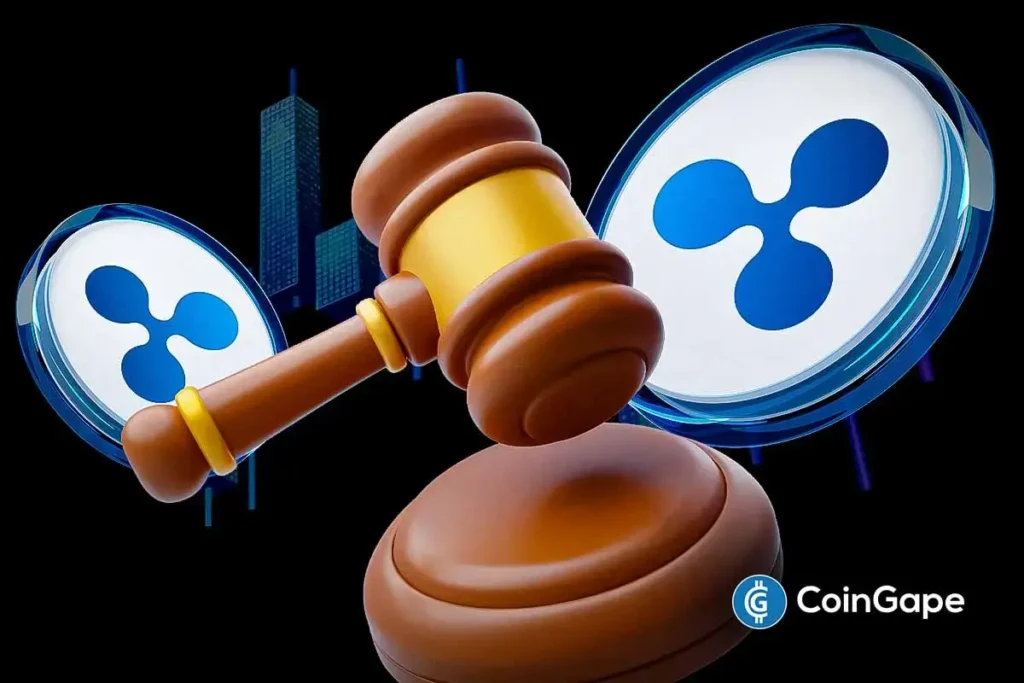Ripple’s Ongoing Legal Battle: Key Updates on the XRP Lawsuit
The legal conflict between Ripple Labs and the U.S. Securities and Exchange Commission (SEC) has been a pivotal moment in the cryptocurrency landscape. The complexity of this case has bred widespread confusion among investors, particularly surrounding a recent injunction related to XRP sales. Legal expert Fred Rispoli has provided critical insights to clarify that the injunction does not hinder Ripple’s future institutional sales. This article delves into the specifics of the injunction, recent clarifications by legal experts, the shift in Ripple’s business strategies, and its implications for the cryptocurrency market.
Understanding the Injunction in the XRP Lawsuit
In the ongoing lawsuit, the SEC alleges that Ripple’s sales of XRP tokens contravened securities laws, particularly pointing to $728 million in sales made to institutional investors. A district judge ruled that XRP transactions on public exchanges were compliant with existing laws, but the sales to institutional clients were deemed illegal. Consequently, the court enforced an injunction prohibiting Ripple from engaging in those specific transactions. However, Rispoli clarified that the term "institutional sales" is narrowly defined and pertains solely to the timeframe between Ripple’s inception and 2018. This clarification suggests that Ripple is not bound by the injunction for any sales made after 2018, providing a path forward for the company.
Legal Interpretations and Regulatory Concerns
James Farrell, another legal expert, echoed Rispoli’s insights, emphasizing that the injunction does not outright ban institutional sales. It primarily prevents Ripple from violating Section 5 of the Securities Act, which revolves around the sale of unregistered securities. Farrell made it clear that the SEC’s apprehension lies not in the sales themselves but in Ripple’s failure to register these securities during the contentious transaction period. Companies like Ripple can navigate these regulatory waters by seeking "no-action letters" from the SEC, which ensure compliance and clarify acceptable practices moving forward.
Anticipated Changes in SEC Stance
Former SEC lawyer Marc Fagel expressed optimism that the agency may ultimately withdraw its appeal in the XRP case, signaling a potential resolution to this protracted legal saga. Nevertheless, uncertainties remain, particularly surrounding whether new internal SEC votes will be necessary to finalize any settlement. As the case continues, Ripple’s legal team remains proactive, assuring stakeholders that they are vigilant about compliance and regulatory requirements in their future sales operations.
Ripple’s Strategic Shift in Response to Legal Challenges
The legal challenges Ripple faces have spurred a transformation in the company’s sales strategies. Ripple has adopted a more transparent approach to institutional sales and seeks to align its practices with the SEC’s expectations. Rispoli noted that this transparency reflects Ripple’s commitment to adhering to securities laws going forward. Furthermore, Ripple’s Chief Legal Officer, Stuart Alderoty, emphasized that the company has ceased its pre-2018 sales practices and is now focused on making future institutional transactions compliant with current regulations.
Future Outlook for Ripple and XRP Transactions
Despite the clarity brought forth by Ripple’s legal representatives, uncertainties loom regarding how the company can conduct future XRP sales. While the injunction restricts sales tied to historical transactions, Ripple remains free to explore institutional sales that adhere to the SEC’s regulations. Whether these future transactions will escape scrutiny is largely contingent on the current administration’s approach at the SEC. Under the leadership of Gary Gensler, stricter enforcement against cryptocurrency firms was anticipated; however, changes within the agency may lead to a more lenient approach.
Conclusion: Navigating the Ripple Effect
As the XRP lawsuit unfolds, Ripple’s ability to navigate the complex regulatory landscape will significantly influence its future in the cryptocurrency market. While the current injunction presents challenges, recent clarifications from legal experts suggest that Ripple may have room to maneuver in the post-2018 arena. The potential for a more favorable regulatory environment under a changing SEC leadership adds another layer of optimism. Moving forward, stakeholders must remain vigilant as Ripple adjusts its strategies to comply with evolving legal interpretations, aiming to stabilize its institutional sales and navigate its way to long-term viability.


